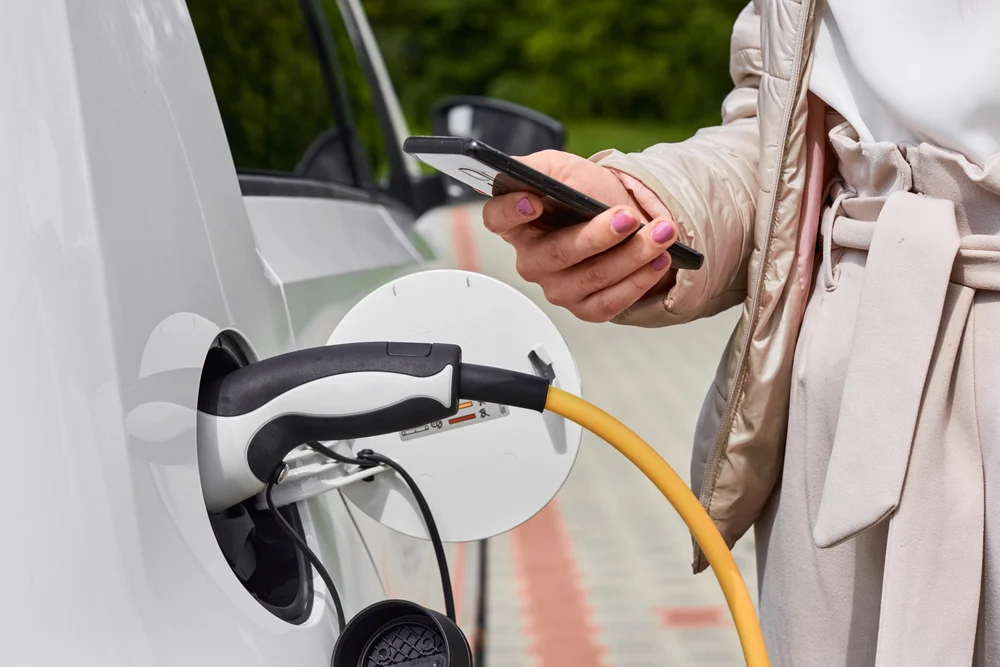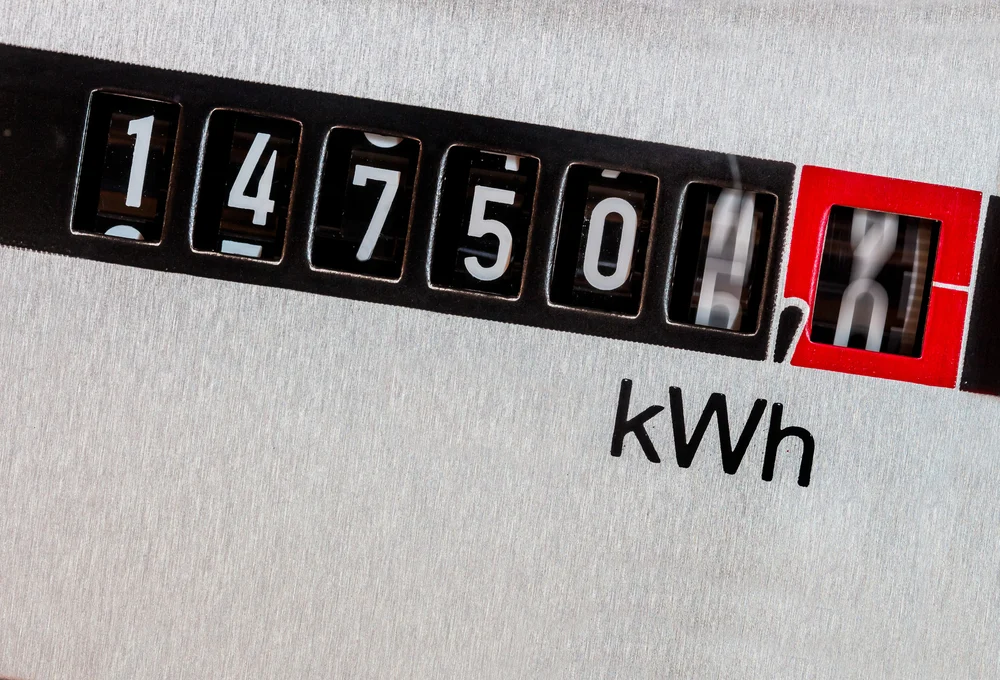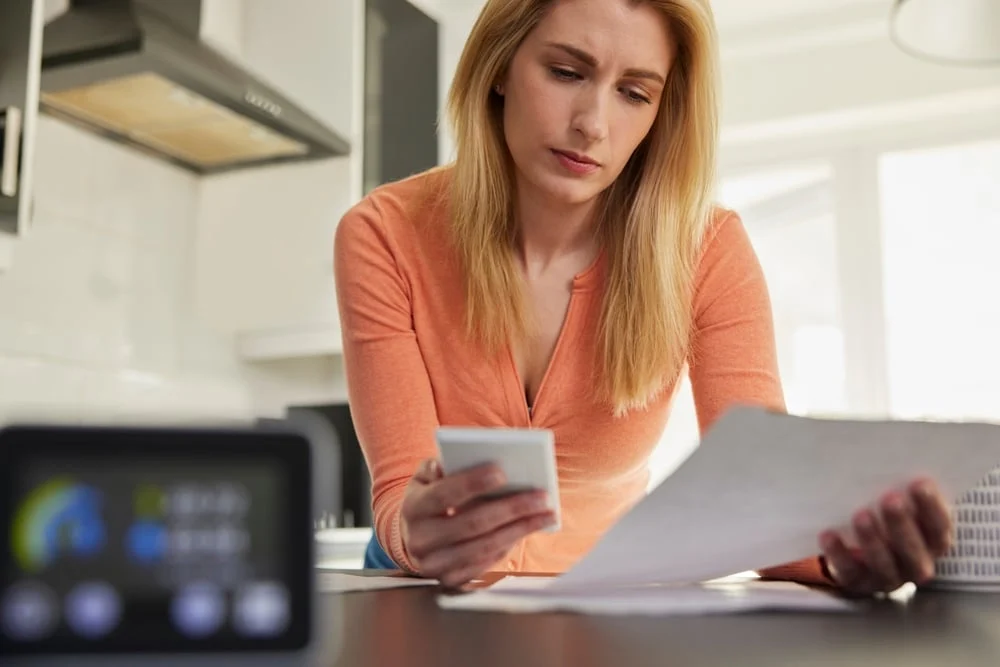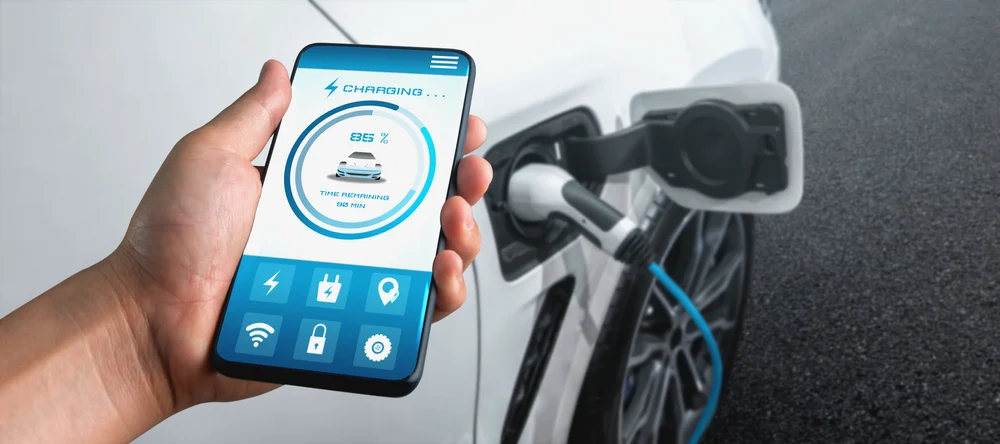And we’re not the only ones seeing this trend.
To support this growth, governments are introducing new regulations that require smart connectivity, aiming to standardize technology and make EV charging more accessible for everyone. While connectivity brings convenience, it also opens up a world of possibilities through smart charging apps.
With a charging app on your phone, you can start and stop your EV charging sessions from anywhere, even from your couch. But there's more than just convenience—home charging apps offer valuable insights into how you use energy, helping you save money and manage your charging more efficiently.

How Can You Benefit From Home EV Charging Insights?
Connected EV chargers and mobile apps provide real-time data about your energy usage, giving you control over your charging habits. This means you can monitor your electricity consumption, track renewable energy use, and optimize when you charge your car to reduce costs.
But what exactly does this mean for you? Let’s break down the key benefits of using smart charging apps and how they can improve your experience with home EV charging.
Monitor and Control Energy Use
One of the biggest advantages of connected charging is the ability to see how much power your EV is using in real time. EV charging is a high-energy process—depending on the charger type, it can draw between 7.4 kW and 22 kW. That’s significantly more than household appliances like a dishwasher, which typically uses around 1,050 to 1,500 W.
So, if you're running multiple devices at once—like the oven, washing machine, and dishwasher—you might find that your home’s electrical system can't handle the extra load. A connected charging station helps you avoid this by letting you schedule charging during off-peak hours or when energy demand is lower.
If you have solar panels or access to renewable energy, some apps even allow you to track and manage your green energy usage directly from your phone.

Reduce Your Electricity Bill
Understanding your energy usage is one of the best ways to cut down on costs. Many utility companies charge different rates depending on the time of day, with higher prices during peak hours and lower prices at night or on weekends.
By analyzing your charging patterns, you can decide whether it’s worth paying more for fast charging during the day or if it’s better to charge at night when rates are cheaper. Some apps even offer smart load shifting, which automatically schedules your charging based on cost and availability.

Manage Multiple Users and Charging Stations
For households with more than one EV or shared charging stations in apartment buildings, managing energy usage can be tricky. Connected charging apps help by separating data for each user or station, making it easier to track individual consumption and ensure fair billing.
This is especially useful in multi-unit buildings where EV charging is shared among residents. Apps can track who used how much energy and even send alerts or notifications when someone starts charging.

From tracking energy use to saving money and managing multiple users, home EV charging apps offer a range of powerful tools. Whether you're a new EV owner or managing a shared charging network, these insights can make your charging experience smarter and more efficient.
If you want to learn more about the full potential of connected charging, read our detailed article on the topic.



